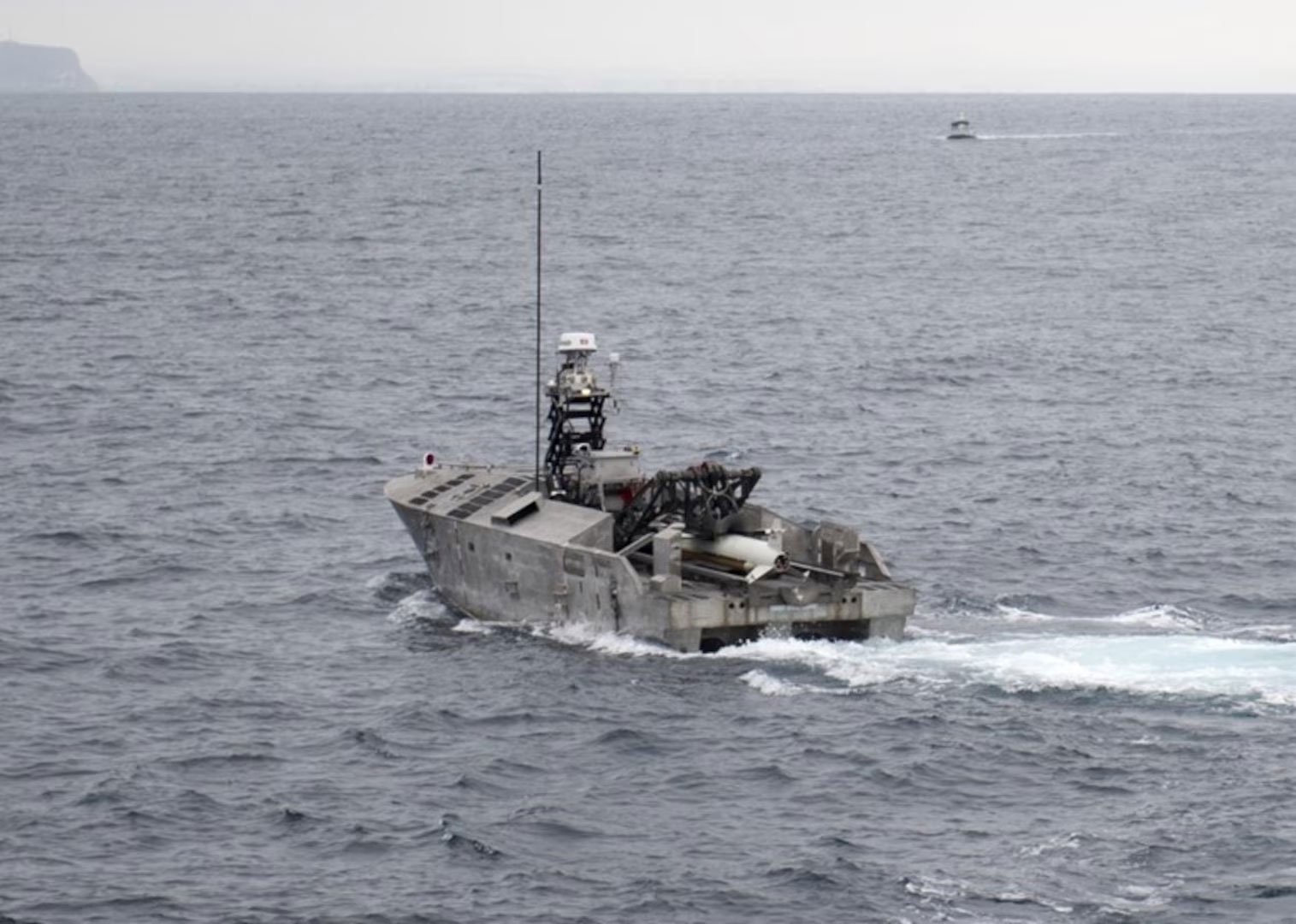The Navy’s Littoral Combat Ship (LCS) mine countermeasures mission package (MCM MP) and AN/AQS-20 Sonar Mine Detection Sets achieved initial operational capability (IOC), officials announced on May 1.
IOC was declared by Vice Adm. Scott Conn, deputy chief of naval operations for warfighting requirements and capabilities (OPNAV N9).
An integrated suite of unmanned maritime systems and sensors, the MCM MP counteracts mines in the littorals while increasing the host vessel’s standoff distance from the threat area. Embarked with the MCM MP, an LCS or a vessel of opportunity can conduct the full spectrum of detect-to-engage operations (hunt, neutralize, and sweep) against mine threats using sensors and weapons deployed from the MCM Unmanned Surface Vehicle (USV), an MH-60S multi-mission helicopter, and associated support equipment.
“The declaration of the MCM MP and AQS-20 IOC is a significant accomplishment for the LCS Mission Modules program and the future of mine countermeasures,” said Capt. Godfrey Weekes, program manager of the LCS mission modules program office (PMS 420). “This milestone enables the Navy to field modern MCM systems to the fleet, replacing aging platforms and sensors. The new equipment utilizes cutting-edge unmanned and autonomous technologies and keeps our Sailors out of harm’s way.”
The AN/AQS-20 is a mine hunting and identification system with sensors housed in an underwater towed body that integrates the Wideband Forward-Looking Sonar (WBFLS), two multi-function Side Look Synthetic Aperture Sonars (MFSLS), and Digital Gap Fill Sonar (DGFS) for the detection, classification, and localization of targets. The integration of the Electro-Optic Identification (EOID) sensor allows additional capability. Like the Unmanned Influence Sweep System (UISS), which achieved IOC in July of 2022, the AN/AQS-20 is towed from the MCM USV.
“Achieving IOC of the entire mine countermeasures mission package is the result of rigorous testing and evaluation of each component of the package and then integrating the systems and the mission to ensure the fleet is receiving the best MCM capabilities possible,” said Rear Adm. Casey Moton, program executive officer, unmanned and small combatants (PEO USC), which oversees the LCS mission modules program. “This is also a critical step in the Navy’s progress towards the hybrid fleet described in Force Design 2045 by providing a modular MCM capability that leverages unmanned technologies to prosecute mines.”
The MCM MP IOC declaration follows rigorous initial operational testing and evaluation (IOT&E) of the full mission package, including the AN/AQS-20 system, during the fall of 2022 aboard USS Cincinnati (LCS 20).
Brig. Gen. Marcus Annibale, director of Expeditionary Warfare (OPNAV N95) and resource sponsor for mine warfare, noted the importance of the IOC declaration.
“Fielding the MCM MP on Independence-Class LCS is one of the top priorities for OPNAV N95 in order to deliver the capability to the warfighters forward in the fleet. Mine countermeasures are a critical enabler for the joint force and in safeguarding sea-lanes for the global commons.” He also added, “This new capability includes advanced technologies in unmanned systems, allowing greater standoff from the LCS platform as the ‘mothership,’ as well as providing greater precision and capacity while keeping our personnel out of the minefield.”
PEO Unmanned and Small Combatants designs, develops, builds, maintains and modernizes the Navy’s expanding family of unmanned maritime systems, mine warfare systems and small surface combatants.

